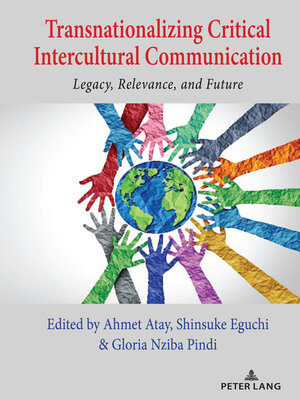Transnationalizing Critical Intercultural Communication
ebook ∣ Legacy, Relevance, and Future · Critical Intercultural Communication Studies
By Bernadette Marie Calafell

Sign up to save your library
With an OverDrive account, you can save your favorite libraries for at-a-glance information about availability. Find out more about OverDrive accounts.
Find this title in Libby, the library reading app by OverDrive.



Search for a digital library with this title
Title found at these libraries:
| Loading... |
The research of international topics and writing about cultural identity formations does not automatically equate to transnationalizing intercultural communication. Studies often perpetuate a hegemonic and U.S.-centric way of doing research, and by default doing intercultural communication scholarship. Thus, intercultural communication and critical intercultural communication (CIC) has not yet fully experienced a transnational turn. Instead, by considering the ideas of nation-state, nationality, and citizenship through theoretical frameworks that are developed by non-U.S.-scholars and transnational scholars within U.S. academia, this book addresses the citationality politics present in the field.
While past studies of critical intercultural communication have been international in scope, with researchers from international backgrounds, their visibility and voice have remained limited in CIC. To achieve transnational inclusivity with CIC, the authors of this book advocate for the use of critical and cultural multi-methods or fusion of them or incorporation of new hybrid methodologies to answer complex, multidimensional, intersectional, and transnational issues and represent those lives and stories.
Collectively, the authors address different topics that help further conceptualize transnational critical intercultural communication. They all call attention to examining global cultural disparities, mediated transnationalities, and transnational oppressive cultural and political structures. Many chapters offer narrative-based writing or autoethnographic methods to unearth these issues and spotlight oppressive structures and inequalities. This book will be essential reading for scholars of CIC and those interested in how transnational cultural practices, regulations, expectations, and limitations continuously shape and reshape the lives of transnational individuals.






